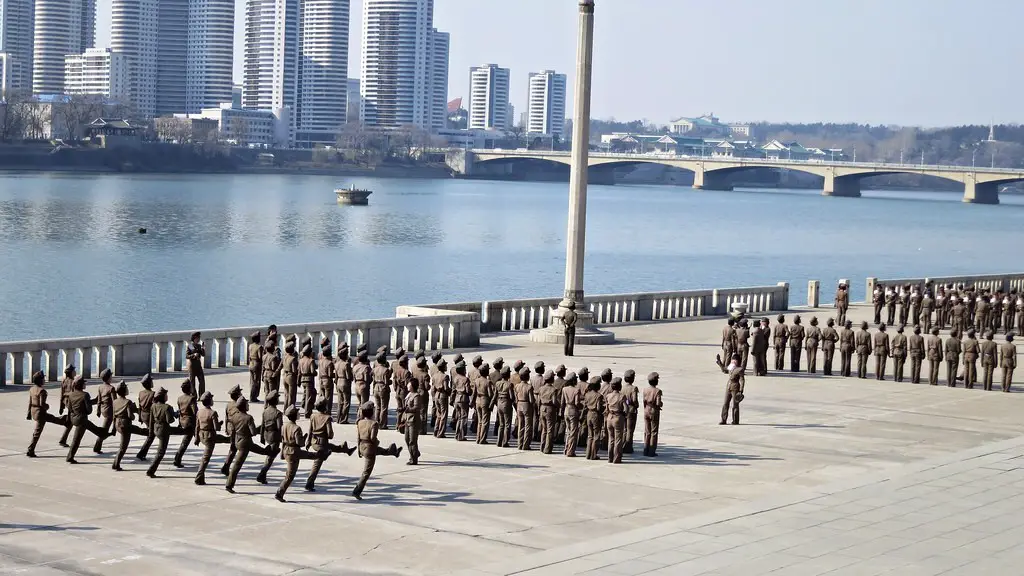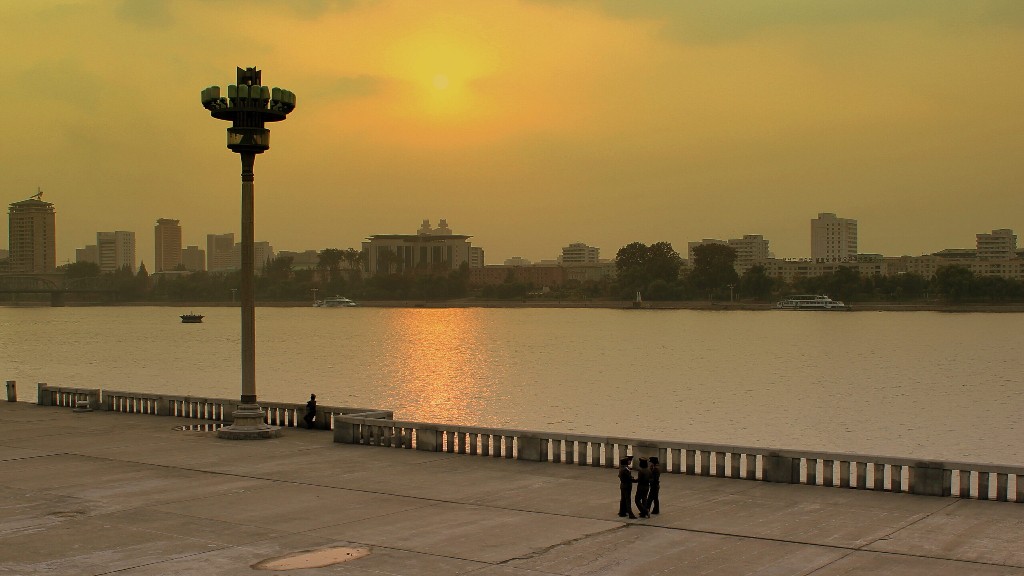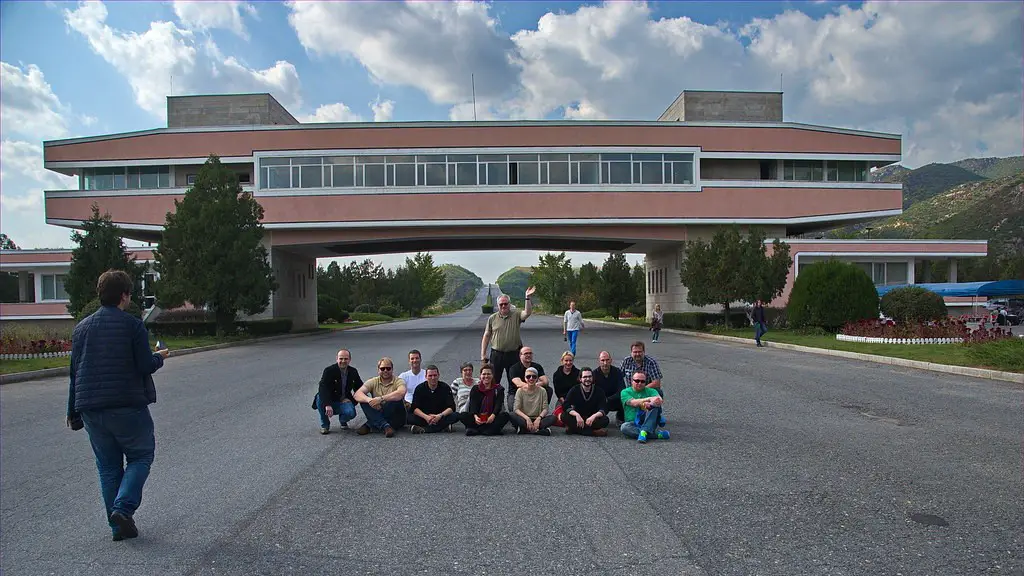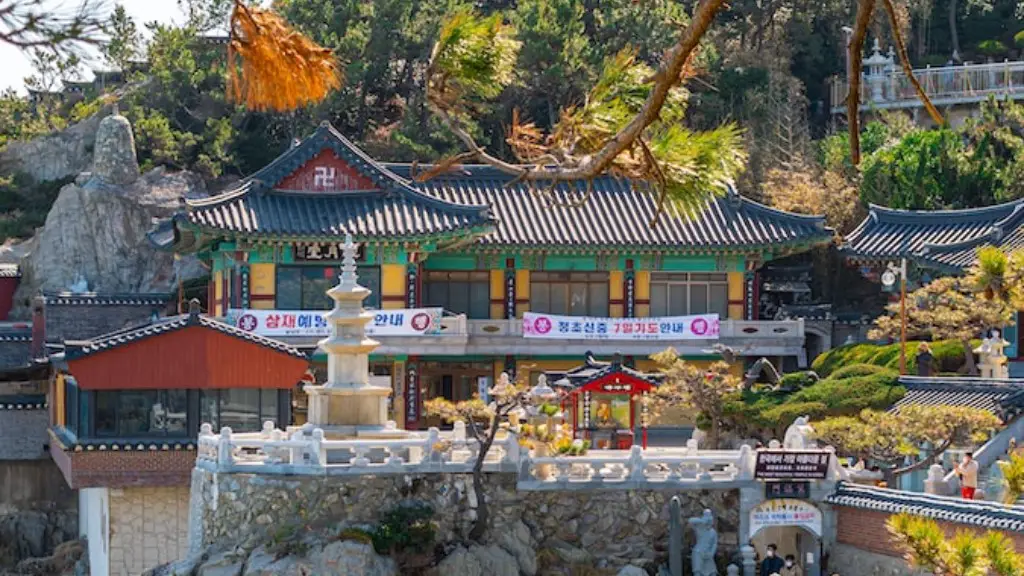The North Korean System: Why Is North Korea So Quiet?
North Korea’s isolation has become a topic of great interest both in the media and in the international community. Despite this curiosity and intense study, the reasons why North Korea remains so closed off are still not fully understood. To answer this question, we must explore the North Korean political system and its inner workings.
Experts speculate that the North Korean system has changed little since the death of Kim Il-sung in 1994, leading to an increasing rigidity and stagnation in the country. Today, it is a state of political authoritarianism, controlled by the ruling family and its core of military supporters. According to analysts, the country’s leaders have pursued a policy of ideological circumspection, allowing the state to maintain a veil of secrecy that makes it difficult to effectively gain insight into its economy or security policies.
In addition to its inner workings, the North Korean system is heavily reliant on a wide range of sanctions and embargoes implemented by the United Nations and other international organizations. These restrictions have resulted in limited trade and investment, a steady decline in GDP, and poverty levels that are among the highest in the world. The economic crisis has led to further isolation as the country does not provide access to foreign companies or investors, limiting the collective resources of the population and placing a heavy burden on its citizens.
The cultural sanctions imposed by the North Koreans have also served to isolate the population from the outside world, limiting their access to modern technology and communication tools such as the internet, television and radio. It is estimated that 90 percent of the population either has no access or limited access to modern technology and media outlets. This means that only a small portion of the population is able to receive any outside news sources or have access to international news outlets.
The political structure of the North Korean system, along with its economic challenges and communication restrictions, creates a harsh environment with little to no opportunity for freedom of expression. This contributes to the country’s quietness as those living in the country are unable to express their opinions or engage with the outside world. North Koreans, particularly those in higher positions, face punishments or death, whilst foreign visitors are restricted from entering the country or are severely limited in their activities.
Cultural Factors Driving Silence
The cultural factors that contribute to the silence of North Korea are rooted in the way the country’s government has shaped the population’s outlook. Since its establishment in 1945, North Korea has sought to reinstate itself as an ethnically homogeneous nation with a strong national identity. This has been achieved through intensive propaganda and state control of information sources and education, as well as through campaigns of intimidation and violence.
This has created an environment in which it is difficult for the population to voice their opinions. There is also a lack of public protest or demonstrations and a low turnout in elections, both of which are indicative of a lack of freedom of expression. The North Korean system has also sought to stabilize the population and limit critical opinion by relying on ‘Songbun’, a system of classifying citizens in which access to resources and opportunities are based on the individual’s background.
The North Korean system is also heavily influenced by Confucianism, an ethical system centered on maintaining the status quo and obedience to authority. As a result, the population has been conditioned to accept the regime’s instructions, contributing to the lack of criticism, discussion, or public opposition to the status quo.
Government Oppression
The North Korean system is also heavily reliant on government oppression to maintain an atmosphere of fear and silence. The government uses a range of tactics to control the population including an extensive surveillance system, secret police, and harsh punishments for those who violate the regime’s rules. Detainees are held in prison camps and subjected to physical and psychological torture, whilst public executions are used to deter those who may voice their opinions.
The state also controls speech, controlling media and news sources as well as heavily censoring the information that is made available to the public. This means that the population is unable to gain access to any independent sources of information or news, creating an atmosphere of ignorance. In addition, the North Korean government has strictly enforced its rules regarding the possession of foreign media and any material seen to challenge the state’s authority.
As a result of these tactics, North Koreans are often too scared to express their opinions, leading to a low level of civil activism and a lack of public opposition or criticism. This contributes to the atmosphere of silence in the country.
Implications of the Silence
The fear and silence that exists in North Korea has far reaching implications for the country’s citizens and the region more broadly. The lack of freedom of expression and the lack of access to international news sources mean that North Koreans are unable to fully understand their situation or the world at large. Additionally, the restrictions on dissent limit the population’s ability to express their opinions, meaning that issues and grievances are often left unresolved.
From an international perspective, the silence and fear surrounding North Korea make it difficult to measure the effect of sanctions and embargoes, and to effectively engage with the country and its citizens. Additionally, the lack of communication and cooperation between North Korea and other countries limits its ability to participate in international negotiations and participate in global dialogue.
The International Community
The international community has sought to engage with North Korea in various ways in order to support the population and to create an atmosphere of openness and dialogue. Countries such as the United States, South Korea, Japan, and China have sought to initiate negotiations and create diplomatic relationships with the country. In addition, organizations such as the United Nations Development Program and the International Federation of Red Cross and Red Crescent Societies have sponsored initiatives to provide humanitarian aid and assistance to those in need.
Despite these efforts, the North Korean system has been resistant to change and continues to maintain a large gap between itself and the international community. As a result, it is unlikely that the country’s silence will be broken in the near future.
Understanding the North Korean System
To understand why North Korea remains so quiet, it is important to consider the inner workings of the North Korean system and the government’s tactics to maintain control over the population. Additionally, cultural factors such as the campaigns of indoctrination and the belief in the status quo contribute to a lack of freedom of expression amongst the population.
The implications of this silence extend beyond North Korea’s borders, limiting the country’s ability to participate in dialogue and negotiations with the international community. It is therefore essential that the international community continues to support and engage with North Korea, offering advice and assistance in order to create a country in which the population can move forward with open dialogue and mutual understanding.
Political Constraints on Dialogue
The existence of political constraints on dialogue between North Korea and the international community is a significant obstacle to the establishment of meaningful international ties. North Korea has historically been very restrictive in regards to its regional relationships, and its leaders have been reluctant to engage in talks or to open the country to outsiders. Diplomatic and economic sanctions have been imposed by the United Nations in order to encourage North Korea to change its foreign policy and to deter further provocations.
These sanctions have had limited effect and have served to further isolate the country from the rest of the world. Even more recently, the United Nations has imposed further restrictions, in an effort to limit the country’s access to foreign technology and knowledge. As a result, the government has been unable to engage with the outside world, leading to a further disconnect between North Korea and the international community.
Internal Politics and Political Participation
In addition to its external politics, North Korea has also been facing a number of internal issues, as its population continues to be deprived of political participation. The country is officially a one-party state, meaning political opposition is not tolerated, and those who challenge the regime are often subjected to arrest or even execution.
The lack of political freedom restricts the population’s ability to influence the direction of the country and to voice their grievances. This further contributes to the atmosphere of silence and limits the opportunities for genuine dialogue and negotiation.
Human Rights in North Korea
The regime’s restrictions on civil liberties and political participation also affect North Korea’s human rights situation, as the population is deprived of basic rights such as freedom of expression and freedom of movement. According to Human Rights Watch, the government continues to use oppressive tactics such as surveillance and arbitrary detention, as well as intimidation and violence against the population.
This has had a detrimental effect on the population and has led to a widespread fear of the regime. In addition, the lack of freedom of expression has served to further silence the population, preventing them from voicing their opinions or seeking help from the international community.
Conclusion
North Korea’s isolation and silence are deeply entrenched in its political and cultural systems, as well as in the oppressive tactics used by the regime. Its internal issues mean that North Koreans are unable to access basic rights, leading to a lack of political or civil participation and a widespread fear of the regime. These internal shortcomings, paired with the external opposition that North Korea faces, have resulted in the country becoming increasingly disconnected from the international community, as demonstrated by its limited access to foreign technology and its obstruction of dialogue, negotiations and diplomacy.





